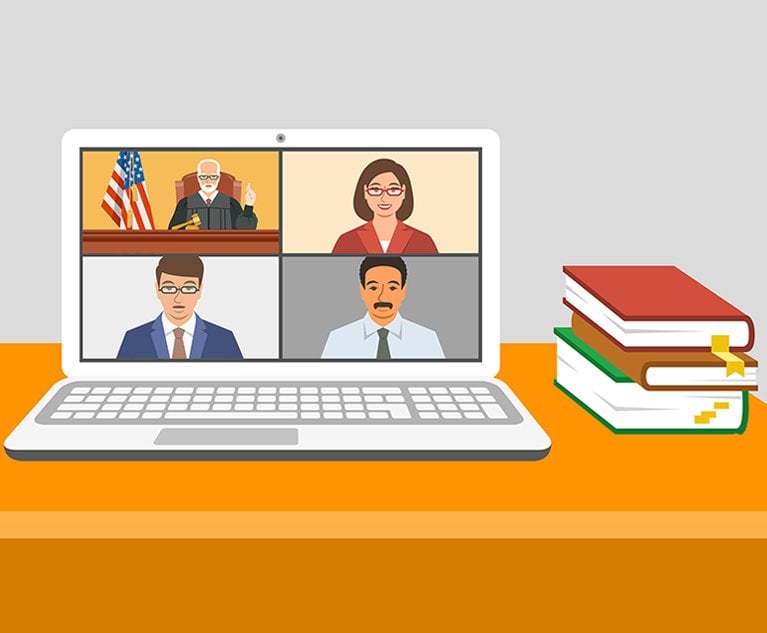Navigating the Future of Legal Procedures With Seamless Remote Depositions Solutions
As innovation continues to advance, the combination of smooth services for remote depositions has actually ended up being crucial for lawful specialists seeking efficient and economical methods to perform depositions. By checking out the ins and outs of navigating the future of legal proceedings via seamless remote deposition remedies, a clearer understanding of the possibilities and intricacies that exist ahead can be gained.
The Surge of Remote Depositions
This shift has been mainly driven by the need for versatility, performance, and cost-effectiveness in lawful procedures (REMOTE DEPOSITIONS). Remote depositions allow lawyers, witnesses, and court press reporters to participate from different areas, eliminating the demand for physical visibility in a specific deposition area.
Moreover, the improvements in video conferencing systems and digital devices have enhanced the total experience of remote depositions, making certain clear audio-visual communication and secure paperwork of testimonies. Attorneys now have the option to effortlessly arrange, record, and record depositions easily, improving the entire procedure.
As modern technology proceeds to advance, remote depositions are anticipated to end up being a lot more widespread in the legal market, offering a practical and reliable solution for conducting depositions in a busy and interconnected world. (REMOTE DEPOSITIONS)
Benefits of Seamless Technology Combination
How does smooth innovation integration enhance the effectiveness and effectiveness of remote depositions in the lawful market? Smooth technology assimilation plays a critical duty in enhancing remote depositions, providing a myriad of advantages to lawyers. By flawlessly integrating technology right into the deposition process, attorneys can carry out depositions easily, despite the participants' physical places. This assimilation permits real-time communication, file sharing, and partnership, promoting a more efficient and effective deposition experience.
Additionally, seamless technology assimilation enables secure and dependable information transmission, making sure that delicate info shared throughout depositions is secured. Advanced functions such as digital exhibitions, electronic signatures, and video clip conferencing enhance the overall performance of remote depositions, mimicking the in-person experience with added comfort. In addition, the assimilation of transcription services and AI-powered devices can even more streamline the deposition process, saving time and decreasing the margin of error.

Overcoming Challenges in Digital Proceedings
To successfully browse digital process, lawyers must resolve and get rid of numerous difficulties that emerge in the electronic environment. Among the main challenges encountered in virtual process is making sure safe communication and information protection. With sensitive information being shared online, maintaining customer confidentiality and preventing information breaches is critical. Additionally, technological anchor difficulties such as bad internet link or audio/video issues can disrupt the circulation of proceedings and effect the top quality of communications between individuals. Attorneys have to also adjust to the absence of physical presence, which can hinder non-verbal cues and communication subtleties important in lawful contexts. Maintaining interaction and focus in virtual settings can be testing for both legal teams and witnesses, possibly impacting the performance of the procedures. To alleviate these difficulties, lawyers ought to purchase trusted innovation, establish clear methods for online proceedings, give training on virtual rules, and make certain contingency plans remain in area to attend to technological issues promptly. By proactively attending to these challenges, lawyers can boost the effectiveness and performance of virtual procedures.
Ensuring Security and Conformity Measures
In the realm of lawful procedures, safeguarding safety and security and making certain conformity measures is of extremely important value for preserving trust and maintaining the integrity of the process. With the change towards remote depositions, making certain the security and discretion of sensitive info exchanged during these proceedings is vital. To attain this, lawyers must utilize protect on the internet systems that offer end-to-end file encryption, safe and secure accessibility controls, and conformity with industry regulations such as HIPAA and GDPR.

Future Trends in Legal Technology Integration
As the lawful landscape proceeds to progress with remote deposition options emphasizing safety and conformity, the combination of sophisticated legal modern technologies is positioned to shape future patterns in the legal industry. AI-powered devices can help in legal study, contract evaluation, and even predicting instance outcomes based on historic information.
Additionally, cloud-based solutions are coming to be increasingly prominent in the lawful industry. Cloud modern technology provides boosted flexibility, scalability, and access, allowing lawyers to function collaboratively from anywhere with a net link. This fad not only improves performance yet likewise promotes cost-effectiveness by reducing the demand for physical facilities and maintenance.
In addition, blockchain innovation is making its method into legal technology integration, providing protected and transparent means to take care of delicate details, improve transactions, and confirm the authenticity of lawful papers. By welcoming these future trends in lawful technology combination, law practice can stay ahead of the curve, improve customer service, and adapt to the changing needs of the sector.
Conclusion
Finally, the combination of smooth remote deposition solutions has actually revolutionized lawful process by providing countless advantages such as enhanced efficiency, cost-effectiveness, Read Full Article and accessibility. Despite encountering difficulties in online procedures, advancements in modern technology remain to address safety and conformity concerns (REMOTE DEPOSITIONS). As the lawful sector embraces further combination of technology, future patterns aim towards a more streamlined and reliable lawful procedure